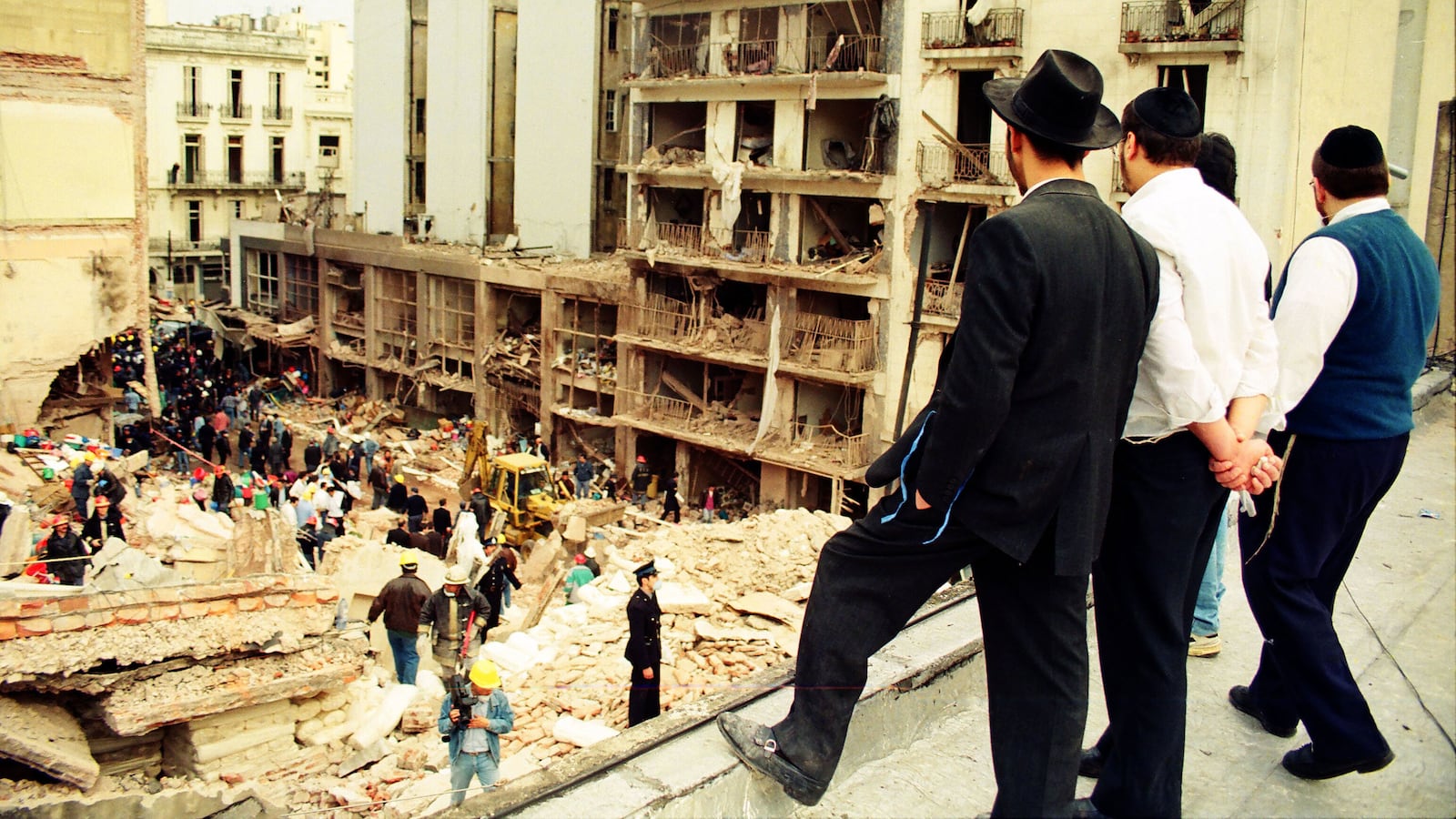BUENOS AIRES—Argentine Special Prosecutor Alberto Nisman was not answering his phone, and his mother was growing worried.
It was the eve of Nisman’s testimony to Congress on Jan. 19, 2015—a monumental event that threatened to expose the sitting president for the biggest cover-up scandal in the nation’s history. Nisman was set to explain, in detail, the bombshell claim he had first made four days prior: that then-President Cristina Kirchner attempted to cover up Iran’s role in the murders of 85 citizens in a 1994 suicide bombing on a Jewish community center that razed several downtown buildings.
Nisman had revealed that Kirchner secretly signed a Memorandum of Understanding with Iran, which stipulated that a binational commission would be formed to re-investigate the incident—and that Iranian suspects could only be interrogated in Tehran. The prosecutor lambasted the deal as an attempt to provide legal immunity to Iranian officials suspected of masterminding the bombing. The “treasonous act,” Nisman had said, was part of the president’s plan to “reconcile with the Islamic Republic of Iran, and restore full state-to-state commercial ties to alleviate Argentina’s severe energy crisis.”

Alberto Nisman
Juan Mabromata/AFP via GettyBut Nisman never made it to his testimony hearing. After failing to hear from her son the night prior, the lawyer’s mother, Sara Garfunkel, eventually decided to drive to the posh apartment he’d taken after a recent divorce. There, to her horror, she stumbled on his lifeless body in the bathroom, in a puddle of congealing blood, with a gun awkwardly placed by his side.
Almost immediately, Kirchner announced that Nisman, 51, a charismatic federal prosecutor, had committed suicide. She later mused that Nisman may have died in a “gay orgy” before lashing out that he was a profligate womanizer. A rushed autopsy was conducted without the knowledge of Nisman’s family. An Argentine police investigation determined that the cause of death was homicide disguised to look like a suicide, but in the grinding void that is Argentina’s judiciary, no one has been charged with the crime.
Cristina Kirchner was unseated in October 2015, losing to Mauricio Macri, a centrist who attempted to root out corruption in the country. But her time out of office would be short-lived: In 2019, Macri lost to a team composed by Kirchner, who is back as an all-powerful vice-president, with her former deputy, Alberto Fernández, now president. Not long after, a federal court in Buenos Aires ruled that Kirchner’s secret agreement with Iran, whose existence Iran initially denied—the heart of Nisman’s claim of treason—“did not constitute a crime.”
“She came back to annul the corruption charges against her,” Waldo Wolff, an opposition legislator, told The Daily Beast.
Now, on the week of the seventh anniversary of Nisman’s death, the Argentine government has decided to add salt to the open wound of the Nisman affair.
Argentine government spokesperson Gabriela Cerruti launched a Twitter war last Sunday denying any Argentine responsibility for persecuting those accused of planning and executing the bombing. Israel, she asserted, should instead be pursuing the killers. Cerruti explained that Iranian Vice President Mohsen Rezaee, against whom Argentina in 2006 issued an international arrest warrant for his role in the 1994 attack, was “someone wanted by Interpol and the Mossad… [who] have far greater intelligence resources than a Latin American embassy in a Caribbean country.”
Her comments have provoked an international scandal. No Israelis were victims of the AMIA bombing, and Israel has no connection to the stagnant case. “The entire thing is objectively a scandal,” a senior Argentine judicial source told The Daily Beast, requesting anonymity due to ongoing government service.
Wolff, who is Jewish, said Cerruti’s claim “foreignizes Argentine Jews.” “I am so ashamed,” he posted, “that the spokesperson for my country’s executive tells me that pursuing an individual sought by our judiciary for the AMIA attack is Israel's responsibility.”
AMIA, the Jewish communal organization that was bombed, put out a statement saying that “it is the Argentine judiciary which accused Iranian officials of planning and executing the attack… The investigation of the worst terrorist attack perpetrated in our country, whose target was an Argentine institution, concerns Argentine authorities.”
The Paris-based Argentine journalist Alejo Schapire remarked ironically that if “it’s a matter for Israeli authorities… the Argentinians must be busy with other matters,” to which Cerruti, digging in, retorted with a Nazi reference to the Macri government: “Argentine intelligence is governed by Argentine law. Although until recently it was used to set up judicial tribunals and Gestapos persecuting trade unionists.”
Nisman’s death enraged Argentinians. On Feb. 18, 2015, almost half a million Argentinians led by a phalanx of fellow federal prosecutors marched in the torrential rain to demand justice. Seven years later, Nisman’s public life and work have been all but erased.
Damian Pachter, the journalist who broke the story of Nisman’s death, who was hounded out of Argentina days later following threats made by the Kirchner government, told The Daily Beast that the “only conclusion I see is that they won, above all by planting the seed of doubt in the mind of the general public, reinforced by a co-opted judicial system that adapts to the political interests of the day.”

Cristina Kirchner
Agustin Marcarian/GettyWith the Argentine economy in shambles, and the country once again sliding towards failed state status, Pachter told The Daily Beast that “after seven years it is too late, but this case reveals the old Argentine reality: a country plagued by corruption in which whoever holds power does practically what they want.”
Argentina, under the leadership of Fernández and Kirchner, appears sanguine about the AMIA bombing, which Nisman was appointed to investigate in 2004. Last week, Daniel Capitanich, Argentina’s ambassador to Nicaragua, attended the fourth inauguration of President Daniel Ortega alongside Iranian Vice President Rezaee.
Argentina, Wolff said, “is difficult to explain… It’s a country in which you come back after a month and everything has changed, but you come back after 20 years and nothing has changed.”
“The people voted in an illicit association,” he said of the current government, adding that no progress has been made since Nisman’s killing “because when the executive sullies the site of the crime, everyone ends up writing their own tango.”
Sergio Berni, the nation’s intelligence chief, presented Nisman’s mother Sarah his condolences “before he was informed whether Nisman was alive or dead,” recalled former parliamentarian Jorge Enriquez in a Thursday radio interview about what he called “the unpunished deed that shames us Argentines.”
Today, Nisman’s family appears to be turning away from the public spotlight. His daughters are on summer vacation and his mother did not attend a march late Tuesday night, organized to mark seven years since his murder.






